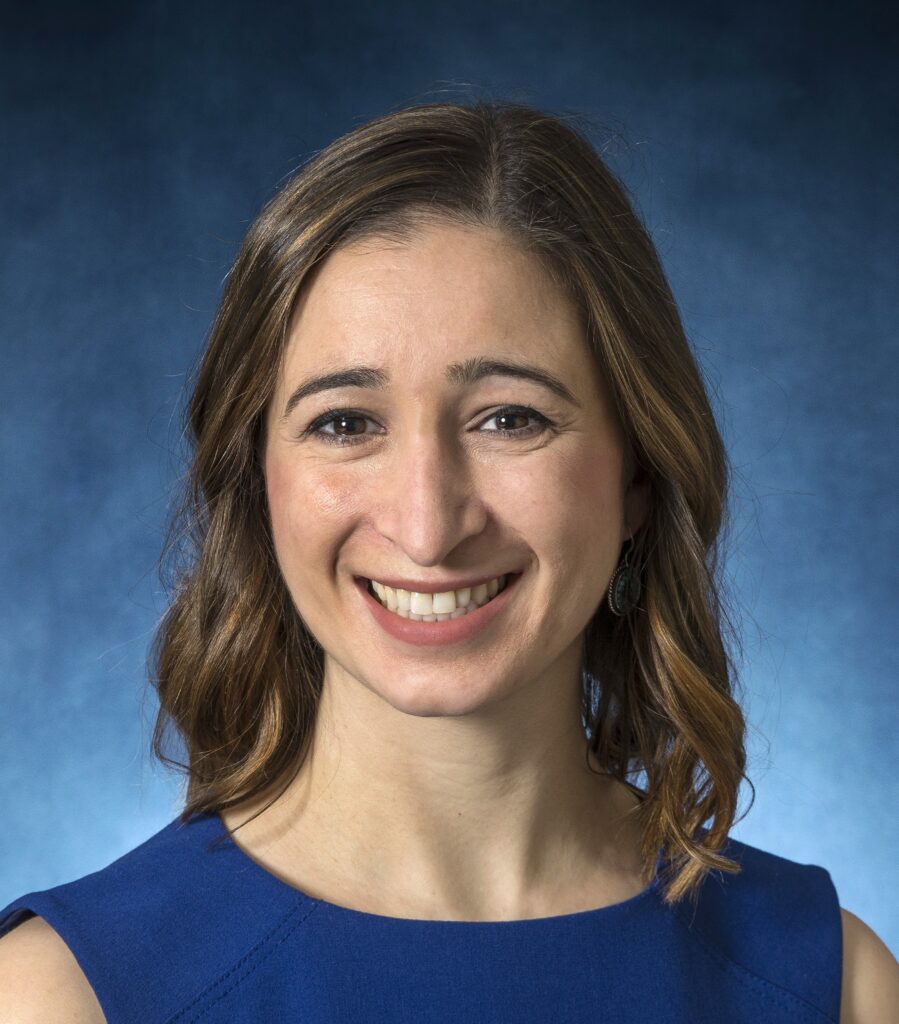September 27, 2023

Rebecca Same, MD, is Assistant Professor of Clinical Pediatrics at the Perelman School of Medicine at the University of Pennsylvania and Associate Medical Director of the Antimicrobial Stewardship Program at Children’s Hospital of Philadelphia (CHOP). She received her medical degree and completed her residency in pediatrics and fellowship in pediatric infectious diseases at The Johns Hopkins University School of Medicine. She was a member of the Division of Pediatric Infectious Diseases at Washington University School of Medicine and the Medical Director of the Antimicrobial Stewardship Program at St. Louis Children’s Hospital before she joined the faculty at CHOP in 2022.
Dr. Same found out about the PIDS Foundation and awards during fellowship at The Johns Hopkins University where much of the faculty were PIDS members. Her research mentor, Pranita Tamma, had been involved in stewardship and knew of Dr. Same’s interest. Dr. Tamma introduced her to the Antimicrobial Stewardship Fellowship Award early into fellowship and recommended she apply. By the end of her first year she had applied and then conducted her research during her second year before presenting it at the International Pediatric Antimicrobial Stewardship Conference.
The ASP Award provides funds for its recipient to travel to the conference and present their research. Dr. Same shared the application process was straightforward and that her mentor was very helpful in assembling it. The proposal calls for research that would be of interest to the stewardship community. For her research, she conducted a retrospective cohort study looking into the duration of therapy for community-acquired pneumonia in hospitalized children. While there existed plenty of evidence in adults, there was not much evidence related to children. Dr. Same’s study looked into whether short-course therapy could be done safely and effectively, certainly something of interest to the stewardship community.
The research used propensity score weighting to compare children who received short-course therapy versus long-course therapy. Outcomes were compared and the incidence of treatment failure between the two groups examined. Kids that received the shorter courses had equivalent outcomes to those who had gotten longer durations of therapy. This meant they could be saved from extra antibiotic days, potential antibiotic-associated adverse events that increase every day kids are on antibiotics, and perhaps prevent the development of antibiotic resistance. The resulting manuscript from the research was published in JPIDS (The Association of Antibiotic Duration With Successful Treatment of Community-Acquired Pneumonia in Children).
This research remains one of the only studies that shows that short-course antibiotic treatment is effective for pneumonia in hospitalized kids. Having conducted the research and adding to existing medical knowledge is an important aspect of the work for Dr. Same. The ASP Award’s funding enabled Dr. Same to present at the conference and helped launch her career. She made connections at the conference that led to her first job out of fellowship. She also has gone on to become co-chair of the conference with Jason Newland and Evan Facer. She continues to present the research, and recently returned from a conference where she spoke about shorter therapy durations.
“The stewardship award is a really great opportunity for anyone who is interested in a career in stewardship. Having served on both sides of this – as an award recipient and presenter and last year as a mentor for a fellow who presented at the conference – I think the ASP Award is a rare, valuable opportunity to meet the broader pediatric stewardship community and get access to mentors beyond your institution who have done similar research and can provide valuable insight, especially for fellows who may be coming from programs where there may not be someone doing stewardship research. It isn’t always easy for fellows to travel and attend conferences. Being able to cover the travel and hotel through the ASP award for the conference gives people the opportunity to conduct research, attend, learn, and make connections that can push the research forward.”